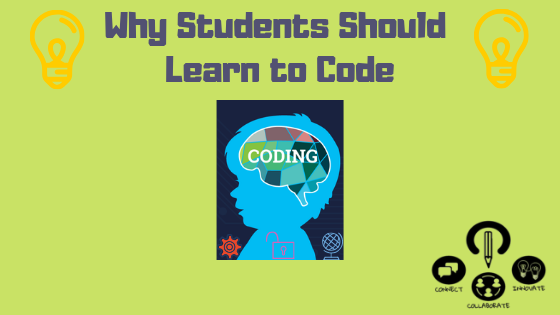At some point or another, we have all heard that coding is the language of the future…this may be a bit outdated as it is actually the language of the present and will continue to be the language of the future. Coding is everywhere.
All industries are affected by technology and jobs are becoming increasingly computerized with 60 percent of jobs today requiring computing skills. In the future, our current elementary students will graduate and work in an industry using technology that hasn’t even been invented yet…that is scary and exciting all at the same time.
This is why it is so important to build 21st century skills. Teaching students about coding now, will prepare them for the future that awaits them. Next week is Computer Science Education Week and students across the country are encouraged to learn an “Hour of Code” (we will provide more detail on “Hour of Code” including resources you can use to implement “Hour of Code” in your classroom in our next post…tomorrow). However, it is beneficial to understand how students can learn so much from coding…more than just computer science.
Coding is the language of creation. It allows you to build a website, create flashy animation, and run machines. However it provides much more than just that…it promotes skills and values we want to see in all students and can be implemented across the curriculum:
- Promotes complex thinking – Writing code takes deep, critical thinking skills.
- Improves academic performance
- students visualize abstract concepts, letting them apply math to real world situations
- students understand the value of being concise and planning, resulting in better writing skills
- students improve creativity through experimentation
- Builds soft skills
- Resilience/Persistence – it breaks the “I can’t barrier” and allows for the engineering of failure
- Communication – coding teaches logical communication strengthening both verbal and written skills
- Problem solving – coding takes complex problems and breaks them down into smaller parts
- Paves a path to the future – It prepares our students to be career ready
- Demands attention to detail – A single wrong letter can be the monkey wrench that grinds all the gears in your programming to a halt.


